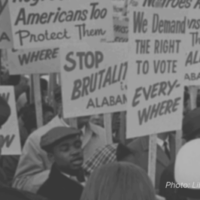New York, NY—Following is a statement by Hugh Baran, staff attorney with the National Employment Law Project, responding to the Equal Employment Opportunity Commission’s 2-1 vote to rescind its 1997 policy statement that “agreements that mandate binding arbitration of discrimination claims as a condition of employment are contrary to the fundamental principles” of the civil rights laws enforced by the EEOC:
“The EEOC’s decision to rescind this guidance gives a green light to employers to expand their use of forced arbitration requirements, which already cover more than 60 million workers in the non-union private sector. Faced with forced arbitration requirements, most employees simply never file claims at all, directly undermining Title VII’s ability to eradicate harassment and discrimination in the workplace.
“Forced arbitration requirements deny workers the right to have their claims heard by a judge and jury, and are deeply damaging to their ability to enforce federal equal employment and opportunity protections—particularly for black women in low-wage industries, who are the most likely to be subject to forced arbitration. Forced arbitration requirements are also frequently accompanied by confidentiality provisions. The net result is a dangerous culture of silence, as has been highlighted by the #MeToo movement, that protects perpetrators and stymies accountability for sexual harassment and assault—as well as for wage theft and other employer lawbreaking.”



